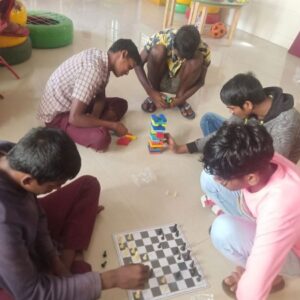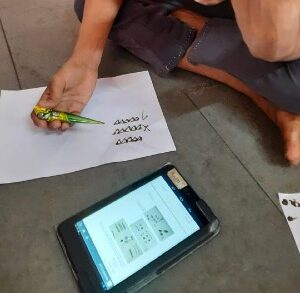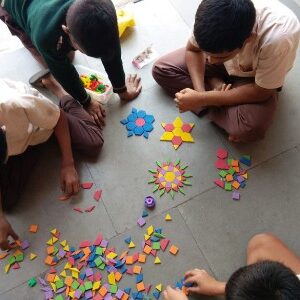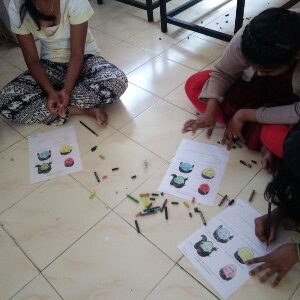THE PROBLEM OF ASHOK
Ashok* was angry and tired. Once again the police had appeared at his home to take him away. This was the third time in the last four years, that he had been summarily carted away. He had to leave his family, his friends and other parts of his life all of a sudden again. Worse, everyone would begin whispering about him again. For the third time.
There had been three cases of robbery against Ashok. Two of them had been cleared so far. The third was pending. And while he awaited trial, once again he was put in that dreaded Observation Home. He hated that place. It was like a jail. Cooped up in one room with a dozen other boys. He first came there as a child. Now he wasn’t even legally a child any more. But there he was again, facing the deadening routine of doing nothing all day.
While Ashok was at the Home, our experienced facilitators from Headstreams found it hard to conduct our regular sessions. Ashok was constantly restless. He could not settle down to doing any activity. He would bully the boys loudly, and the other boys seemed to fear him enough to listen to him. It seemed like he was hitting them and ridiculing them when we were not around. Even we had to stay on high alert to prevent instances of physical fights
breaking out or boys getting verbally abused. If any boy showed an interest in doing the activities of the session, Ashok would try his best to stop him from doing it one way or another.
How can we address this, we wondered? How can we protect the other boys and help Ashok at the same time? We realized that the first step was to look at Ashok not as a problem to be done away with. Ashok was a person who had been picked up from his life summarily and was being judged for a crime he may or may not have committed. Ashok was feeling so insecure that he needed constant attention, feeling so out of control of his life that he needed to be obeyed to feel powerful and in control. We also noted that Ashok had been more amenable in the two weeks before this particular week. Though he had still been loud, he had also been open and cooperative. He had been more responsive to the rules of the space. This helped us understand that his loud bullying this week had probably been triggered by something that had happened, or something someone had said. And though we didn’t know what this was, we were able to shift our thinking.
We realized that the Ashok we saw here, was only one part of who he was. We accepted that his behaviour here did not define who Ashok really could be.
Thinking in this manner, helped us to view Ashok in a more humane light. We decided that we wanted Ashok to experience kindness and non-judgement. When he left, we wanted for him to leave with a memory of a time and people who treated him with respect. So we continued speaking to him kindly but firmly, refusing to be provoked to anger while stepping in to protect the others the best we could.
This week Ashok was awarded bail and so was able to leave the Home. We will miss him because of what he reminded us: People are not problems; people are hurting and need help. We met Ashok as part of our project “Play and Learning”. Through this, we work in the short-stay institutions set up under the Juvenile Justice Act, to help house children (those below 18 years of age) who enter the judicial system for a number of reasons. Our work at the State Government-run Child Care Institutions (CCIs) in Bengaluru is extremely challenging but hugely rewarding at the same time.




